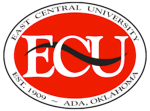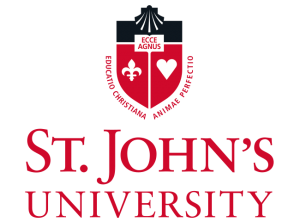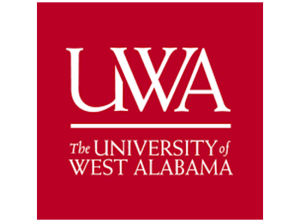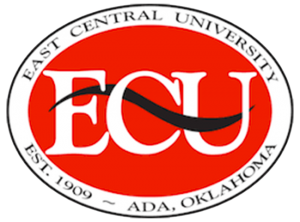 To become a librarian, whether in a school or a public library, you need a master’s degree. But these programs require a large commitment of time, money, and energy. Fortunately, many online options make a master’s in library science more convenient and affordable. Read on to find the cheapest MLIS degree online.
To become a librarian, whether in a school or a public library, you need a master’s degree. But these programs require a large commitment of time, money, and energy. Fortunately, many online options make a master’s in library science more convenient and affordable. Read on to find the cheapest MLIS degree online.
With 67 different schools offering a total of 76 online master’s in library science, there are numerous degrees available. Some schools charge under $10,000, while the most expensive is over $66,000. If you are on a budget, you could save a lot of money by choosing one of our “Best Buy” options for this useful degree. This guide showcases the most up-to-date information, making it easy to select a program that suits both your needs and your budget.
ARTICLE NAVIGATION: Rankings Table | Career Guide
Average Cost (In-state): ~$21,600
Least Expensive (All Students): Valdosta State University ~$9,050
Most Expensive: University of Southern California ~$66,382
Our data-driven research creates a reliable system of scientific rankings. There are no fancy formulas; we meticulously calculate total full-time tuition, including any fees, for the most accurate total cost. Our rankings cannot be bought, and therefore factually showcase the cheapest MLIS degree online options.
All degrees listed above the gray dividing line are official “Best Buys” and cost less than the national average of $21,600.
The Cheapest MLIS Degree Online Programs
| Rank | School / Degree | State | Price | Note |
|---|---|---|---|---|
1 | Valdosta State University | (GA) | $9,050.00 | All Students |
2 | University of Central Arkansas | (AR) | $9,750.00 | All Students |
3 | Georgia College & State University | (GA) | $10,628.00 | All Students |
4 | North Carolina Central University | (NC) | $10,714.00 $37,330.00 | In-State Out-of-State |
5 | Fort Hays State University | (KS) | $10,748.00 | All Students |
6 | Appalachian State University | (NC) | $10,952.00 $40,972.00 | In-State Out-of-State |
7 | East Carolina University | (NC) | $11,294.00 $39,784.00 | In-State Out-of-State |
8 | University of West Georgia | (GA) | $11,472.00 | All Students |
9 | Northeastern State University | (OK) | $11,662.00 $11,695.00 | In-State Out-of-State |
10 | Valdosta State University | (GA) | $11,687.00 | All Students |
11 |  East Central University | (OK) | $11,872.00 $23,231.00 | In-State Out-of-State |
12 | Eastern Kentucky University | (KY) | $12,369.00 | All Students |
13 | University of Montana | (MT) | $12,580.00 $34,648.00 | In-State Out-of-State |
14 | University of North Carolina at Greensboro | (NC) | $12,770.00 $23,208.00 | In-State Out-of-State |
15 | Trevecca Nazarene University | (TN) | $13,050.00 | All Students |
16 | Eastern Washington University | (WA) | $13,475.00 | All Students |
17 | Emporia State University | (KS) | $13,555.00 $18,465.00 | In-State Out-of-State |
18 | Clayton State University | (GA) | $14,088.00 | All Students |
19 |  University of West Alabama | (AL) | $14,397.00 | All Students |
20 | Jacksonville State University | (AL) | $14,760.00 | All Students |
21 | Texas Woman's University | (TX) | $14,955.00 $29,643.00 | In-State Out-of-State |
22 | University of South Alabama | (AL) | $15,555.00 | All Students |
23 | University of Central Missouri | (MO) | $15,827.00 | All Students |
24 | Marshall University | (WV) | $16,020.00 | All Students |
25 | Texas Woman's University | (TX) | $16,021.00 $31,933.00 | In-State Out-of-State |
26 | The University of Alabama | (AL) | $16,200.00 | All Students |
27 | University of North Texas | (TX) | $16,252.00 $23,575.00 | In-State Out-of-State |
28 | University of Central Oklahoma | (OK) | $16,865.00 $31,877.00 | In-State Out-of-State |
29 | Chicago State University | (IL) | $16,999.00 $28,506.00 | In-State Out-of-State |
30 | Northwestern State University of Louisiana | (LA) | $17,100.00 | All Students |
31 | Saint Cloud State University | (MN) | $17,145.00 $25,065.00 | In-State Out-of-State |
32 | Valley City State University | (ND) | $17,298.00 | All Students |
33 | Louisiana State University and Agricultural & Mechanical College | (LA) | $17,460.00 | All Students |
34 | Lindenwood University | (MO) | $17,970.00 | All Students |
35 | University of South Florida | (FL) | $17,996.00 $35,380.00 | In-State Out-of-State |
36 | Old Dominion University | (VA) | $18,074.00 $18,794.00 | In-State Out-of-State |
37 | Murray State University | (KY) | $18,285.00 | All Students |
38 | University of Northern Iowa | (IA) | $18,327.00 | All Students |
39 | Lindenwood University | (MO) | $19,590.00 | All Students |
40 | University of Memphis | (TN) | $19,680.00 | All Students |
41 | McDaniel College | (MD) | $19,744.00 | All Students |
42 | University at Buffalo | (NY) | $19,881.00 $23,265.00 | In-State Out-of-State |
43 | University of Missouri-Columbia | (MO) | $19,910.00 $18,212.00 | In-State/Out-of-State Military |
44 | San Jose State University | (CA) | $20,382.00 | All Students |
45 | University of South Carolina-Columbia | (SC) | $20,601.00 | All Students |
46 | Western Kentucky University | (KY) | $21,210.00 | All Students |
47 | University at Buffalo | (NY) | $21,508.00 $25,174.00 | In-State Out-of-State |
48 | University of Southern Mississippi | (MS) | $21,565.00 | All Students |
| School / Degree | State | Price | Note | |
|---|---|---|---|---|
Middle Tennessee State University | (TN) | $21,636.00 $31,032.00 | In-State Out-of-State | |
Indiana University Online | (IN) | $22,021.00 | All Students | |
SUNY at Albany | (NY) | $22,263.00 $25,647.00 | In-State Out-of-State | |
Kutztown University of Pennsylvania | (PA) | $22,420.00 $23,266.00 | In-State Out-of-State | |
University of Iowa | (IA) | $22,434.00 | All Students | |
East Tennessee State University | (TN) | $23,760.00 $29,340.00 | In-State Out-of-State | |
Pennsylvania Western University | (PA) | $24,358.00 $27,724.00 | In-State Out-of-State | |
University of Kentucky | (KY) | $25,758.00 | All Students | |
Fresno Pacific University | (CA) | $26,325.00 | All Students | |
University of Illinois at Urbana-Champaign | (IL) | $27,200.00 $37,640.00 | In-State Out-of-State | |
Kent State University | (OH) | $27,380.00 | All Students | |
University of Wisconsin-Milwaukee | (WI) | $28,800.00 | All Students | |
University of Wisconsin-Madison | (WI) | $30,600.00 | All Students | |
Dominican University | (IL) | $31,725.00 | All Students | |
University of Arizona | (AZ) | $33,300.00 | All Students | |
Southern Connecticut State University | (CT) | $33,344.00 | All Students | |
Rutgers University | (NJ) | $34,200.00 | All Students | |
Wayne State University | (MI) | $34,287.00 | All Students | |
St. Catherine University | (MN) | $38,892.00 | All Students | |
Syracuse University | (NY) | $39,996.00 | All Students | |
 St. John's University | (NY) | $52,100.00 | All Students | |
University of Washington | (WA) | $57,778.00 | All Students | |
Drexel University | (PA) | $62,190.00 $46,665.00 | In-State/Out-of-State Military | |
University of Southern California | (CA) | $66,382.00 | All Students |
Program Note: To qualify for a ranking, the master’s in library science online must be regionally accredited. Additional programmatic accreditation is noted in the rank table. Degrees labeled with superscript 14 indicate that options for this program have changed since publication.
CAEP Council for the Accreditation of Educator Preparation
ALA American Library Association
Rankings Note: These online college rankings are based on a GetEducated Winter/Spring 2023 review of regionally accredited, master’s in library science online. Total cost includes full-time tuition and fees and was valid at the time of collection and specific to the online learning program. School profiles for the online master’s in library science in our directory may reflect a slightly different cost based on different editorial update schedules. The published cost is an estimated sticker price for the entire online master’s in library science program including fees. Actual costs may vary by student. Factors such as transfer credits, prerequisite courses, professional licensing and financial aid availability will affect final cost.
Editorial Note: Online schools do NOT pay to be included in any GetEducated online degree ranking. These rankings are editorially independent, open to any regionally accredited or candidate college that offers a master’s in library science online that is available at least 80 percent through online learning and that is open to enrollment by the public. If your online college is regionally accredited and not currently reviewed by GetEducated, please contact us for inclusion.
These rankings of the cheapest MLIS degree online programs may NOT be re-posted online or reprinted in any format without a license from GetEducated ®. Consumer finance bloggers and writers can contact our editors for a free custom article on the cheapest MLIS degree online programs for use on your website. Our mission: Help consumers GetEducated ® about the best online colleges for cost and credibility.
Why Should I Get a Degree in Library Science?
There are many reasons to complete a master’s in library science online cheap degree. Here are a few of the most important reasons:
- A Stable Career: The job growth for librarians is expected to be 6%, which is just above the national rate for all careers. This job market is stable and reliable.
- Use Your Bachelor’s Degree: If you have a bachelor’s degree in communication, journalism, liberal arts, teaching, or a variety of related subjects, but have not yet found your calling, these degrees can help. In roughly two years, you can gain the skills needed to become a librarian.
- Strong Pay: The median salary for librarians and media specialists is $61,190, roughly $15,000 more than the median pay for all occupations. Also, the top 10% in this profession earn over $97,000.
- Online creates convenient learning: All the master’s programs in this database are at least 80% online, while many are fully online. This creates greater convenience for your learning.
What Is the Cost for The Cheapest MLIS Degree Online?
While prices range from just over $9,000 to more than $66,000, these degrees often have a fair price. In general, students on a budget can find plenty of affordable options, and the master’s in library science online cost is often reasonable.
The most affordable MLIS degree online is the Master of Education in Instructional Technology / School Library Media from Valdosta State University in Georgia. With a price tag of only $9,050, this program therefore costs about $4,525 annually (assuming a two-year plan) and about $2,262 per semester. This low price is available to in-state and out-of-state students, making it a great option for any online learner.
The average cost for these programs is $21,600. There are 49 programs priced below this average, and many cost well below $20,000. In detail, there are 22 programs with a price below $15,000, with six programs priced below $11,000 for in-state students.
The most expensive program comes from the University of Southern California. Its Master of Management in Library & Information Science has a price of $66,382, making it roughly $57,000 more than the cheapest MLIS degree online on this list.
In most cases, the cheapest option will be an in-state public school. Each college has its own price structure, but private schools and out-of-state schools usually have the highest tuition.
Top Three Cheapest Master’s in Library Science Online
#1. Valdosta State University – Master of Education in Instructional Technology / School Library Media
The lowest-priced option on our list comes from Valdosta State University in Georgia. This school offers the same low tuition and fees to both in-state and out-of-state online students, making this the cheapest program available nationwide. For just $9,050, students can complete an M.Ed in Instructional Technology.
The School Library Media concentration is designed for those who want a career working in PreK-Grade 12 as school media specialists. After completing this CAEP-accredited degree and the GACE Content Assessment, graduates will be eligible for the Georgia S-5 certificate. Students planning to work in other states should consult with their state board of education to ensure this program meets licensing requirements.
#2. University of Central Arkansas – Master of Science in Library Media & Information Technologies
If you want to become a library media specialist in K-12 schools, this program from the University of Central Arkansas is another great choice. With a total cost of just $9,750 for all online students, you can complete your degree with affordability and convenience.
The Master of Science in Library Media and Information Technologies has a lot to offer potential students:
- CAEP accreditation
- National recognition by the American Association of School Librarians (AASL) as an Exemplary School Library Program
- 99% PRAXIS II content pass rate in School Library Media
The curriculum of the program follows the principles of AASL’s Empowering Learners program standards and standards set by the state of Arkansas for School Library Media. Students planning to work in schools outside of Arkansas should contact their state’s department of education and the UCA program coordinator to determine whether this program meets licensing or endorsement requirements.
#3. Georgia College & State University – Master of Education in Library Media
The third cheapest online library science degree on our list prepares students for careers as library media specialists with a focus on school improvement. With a low price tag of $10,628, students regardless of state have an affordable pathway to obtaining S-5 certification in Media Specialist in the state of Georgia.
The CAEP-accredited curriculum consists of 36 credit hours of professional education, certification area courses, and electives. Teaching certification is not required for admission. Program participants will gain real-world experience in school improvement, working with others from their school or district to examine current issues and create a plan for implementing new practices to enhance student learning.
What to Expect from Some of the Cheapest MLIS Degree Online Programs
Most master’s degrees require roughly two years of full-time academic study, although there are programs that offer completion in one year. In most cases, this means a summer-fall-spring schedule, with all classes completed over a single year. However, many programs allow master’s students to complete their coursework over a longer period on a part-time schedule.
A master’s in library science builds on information and media technology, as well as techniques for storing, organizing, and accessing information. It may also include courses that focus on helping others access specific information or documents. There will also be aspects of library management, library organization, and information studies.
Certification or Non-Certification?
With these degrees, you can choose a certification or non-certification option. The certification option allows you to become a teacher or public school librarian, while the non-certification does not. If you want to work in public schools and already have a teaching degree, qualify for a teaching certificate, or have a teaching certificate, the non-certification option will meet your needs.
However, if you do not have a certification and want to work in public schools, you need to find an online master’s in library science that offers certification.
Will You Complete a Practicum?
Many programs include a practicum, which is direct experience in a work setting. Similar to an internship, this requirement places you in a school or library and allows you to learn the trade from experienced professionals.
What’s the Difference between a Librarian and a Library Media Specialist?
After graduation from one of the cheapest MLIS degree online programs, you’ll have the option of becoming a librarian or a library media specialist. These are similar occupations, but they have many distinct differences.
Librarians are in charge of the management and organization of libraries. They oversee the storage of records, books, and other documents, and may be responsible for hiring, schedules, programs, and more.
Media specialists are more focused on information technology. They serve as virtual consultants, teaching students and the public how to access information using the latest technology.
The roles often overlap, but these are the main differences between the two.
Courses in a Master’s in Library Science
To better understand these online master’s in library science programs and their requirements, it helps to look at the structure and courses in a few specific degrees:
Georgia College & State University – Master of Education in Library Media
This program prepares graduates to work in a school setting as well as careers outside of education. It requires 36 credit hours. Students have up to six years to complete these courses. Students who want a teacher certification may need additional credit hours. The program includes 10 required classes (three credits each) and two electives.
The required courses focus on library and teaching issues. Classes include “Technology for Teachers,” “Selection of Library Media,” and “Intro to Distance Learning.” Students must select two electives from a list of eight options. These include subjects in teaching, classroom management, children’s literature, and emerging technologies.
Kutztown University of Pennsylvania – Master of Library Science (Initial Certification)
Kutztown University offers this program without certification, with initial certification, and with extension of certification. The initial certification option allows students to complete K-12 library science certification and become school librarians. The extension option allows for career advancement for current librarians. With a certification add-on, this program requires 54 credit hours, far more than a typical master’s program.
The program includes professional education courses, required foundation courses, and clinical experience or a practicum. Students must complete all four professional education courses, which cover subjects like cognitive development and literacy. The foundation courses include “Information Resources and Services,” “Resources for Children and Young Adults,” and “Educational Program of the Library Media Center.”
Southern Connecticut State University – Master of Library & Information Science
Compared to the degrees we discussed above, this one focuses less on school environments and more on the needs of public libraries. The program includes two sections: required core course (18 credits) and the concentration courses (15 credits), which total 33 credit hours.
In the required core courses, students will complete classes such as “Fundamentals of Library and Information Science” and “Information Science and Technology.” The concentration classes vary. With the help of an advisor, students can choose electives according to their interests.
Accreditation for Master of Library Science Programs
Accreditation acts like quality control for the academic industry. In detail, it is a review process where independent groups examine a school or program and approve, or accredit, the education.
Accreditation comes in two major forms: institutional and programmatic. Institutional, on one hand, covers the entire school and is completed by regional groups like the Middle States Commission on Higher Education and the New England Commission of Higher Education.
Programmatic, on the other hand, only covers a single program. For example, a construction degree can have accreditation the American Council for Construction Education. For these master’s in library science online, there are two main accrediting groups: the Council for the Accreditation of Educator Preparation (CAEP) and the American Library Association Committee on Accreditation (ALA-CoA).
Council for the Accreditation of Educator Preparation
Focusing on education degrees, including bachelor’s, master’s, and doctorate programs, this group presently includes teachers, policymakers, employers, and experts interested in the education process.
Programs accredited by the CAEP include:
- Georgia College & State University – Master of Education in Library Media
- University of West Alabama – Master of Education in Library Media
- Marshall University – Master of Arts in Education / School Library Media
- Old Dominion University – Master of Library & Information Studies
American Library Association
This group, which is also recognized by the Council for Higher Education Accreditation, only accredits master’s degrees in library and information studies.
ALA-accredited programs include:
- East Tennessee State University – Master of Education in School Librarianship
- University of South Florida – Master of Arts in Library & Information Science
- Chicago State University – Master of Science in Library & Information Science
- The University of Alabama – Master of Library & Information Studies
Some programs have approval from both the CAEP and ALA-CoA. These include:
- University of Missouri-Columbia – Master of Library & Information Science
- University of Southern Mississippi – Master of Library & Information Science
- Emporia State University – Master of Library Science
Typical Admission Requirements for the Cheapest MLIS Degree Online Programs
To enroll in one of these programs, you need to meet many requirements. Master’s degrees are high levels of education, so schools have rigorous expectations for incoming students.
The most basic requirement is a bachelor’s degree. You’ll need a degree in information science, library studies, teaching, or a similar field. Many programs also require a minimum GPA, such as a 2.5 or 3.0, from incoming students.
A master’s degree, regardless of the subject, requires numerous documents. Most programs require letters of recommendation from former teachers, employers, or professional contacts. You’ll also need to complete a statement of purpose, which describes your career goals and how the degree will help you reach them.
To better understand the requirements, let’s look at a typical example. The University of North Texas offers a Master of Science in Library Sciences. To enroll in this program, you need a bachelor’s degree from an accredited school. You must also have a GPA of at least 3.0. The school requires two letters of recommendation from former professors or employers, as well as a personal statement of your career objectives.
Licensing and Certification for Librarians and Media Professionals
Licensing is a regular requirement for a variety of careers. Doctors, lawyers, public school teachers, and civil engineers all need licensing or certification of some kind. With librarians and media specialists, licensing requirements vary by state. In most cases, the only time you’ll need a license or state-mandated certification is when you work as a librarian at a public school.
Public school librarians and library media specialists need a teacher’s certification. States often require school librarians to pass standardized testing, including the Praxis II Library Media Specialist. The Praxis tests are a measurement of the knowledge and skills needed to run a classroom or school setting. There are tests for classroom teachers, as well as special tests for specific professionals such as school librarians. The Praxis test is not universal, but many states use it as the foundation for certification. Check your state’s department of education to see which tests they use.
Some states may require certification for librarians who work at public libraries, although this requirement is not universal.
Salary and Career Outlook for Librarians
Librarians and media specialists may not have the highest incomes on the job market, but their earnings are not low either. The median annual income in this field, as of May 2021, was $61,190. This is roughly $15,000 more than the income for all careers, which is just under $46,000.
With experience and skill, it’s possible to increase these earnings. The top 10% in this profession earn over $97,000, so there is certainly a chance for high earnings.
The District of Columbia has the highest wages for librarians and media collection specialists, according to the BLS. The median salary in this area is $89,610. The state of Washington is second with a median salary of $87,710. If you want a strong income as a librarian, these are the places to work.
Job growth and overall stability will be favorable. Although this career won’t see massive growth like some tech or healthcare jobs, the BLS expects this career to see 6% growth between 2021 and 2031. For perspective, the growth across all fields will be 5%.
Overall, this is a strong and stable career. Most earn decent salaries. With experience and dedication there is the potential for high incomes. With stable job growth, the outlook for librarians and media specialists is positive.
What’s the Next Step after the Cheapest MLIS Degree Online?
For many librarians and media specialists, a master’s degree is the pinnacle of their formal education. This is all the education they will need for a successful, rewarding career. However, it is possible to continue your education, especially if you showed academic excellence during an online master’s in library science.
A doctorate in media or library science could be a useful addition to your education. These degrees, which require a massive commitment of time and energy, allow you to dive deeply into the subject of library science and information organization. While some active librarians have doctorates, most people who complete these degrees will work in academia. They will become professors of library science who teach the next generation of librarians and media specialists.
Few will complete a doctorate. However, if you work in a position that requires certification (public school librarian, some librarians in public libraries), you will need continuing education to maintain certification throughout your career. Typically, this requires a certain amount of continuing education credits and renewal every five years.
Become a Librarian with an Affordable Online Degree
You can become an expert in library science with the cheapest MLIS degree online for your needs. Use the resources on GetEducated.com today for more information on the top degrees for aspiring librarians and media specialists!




